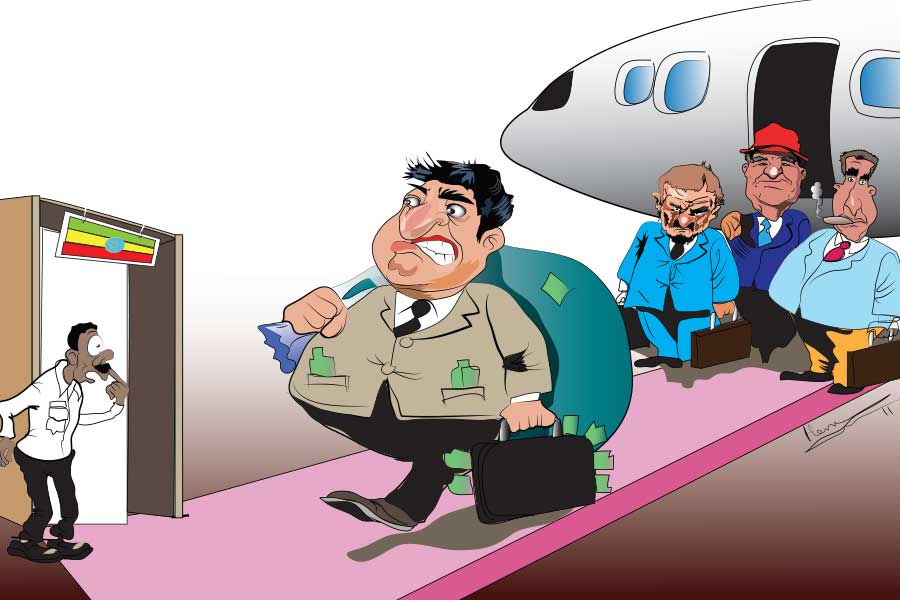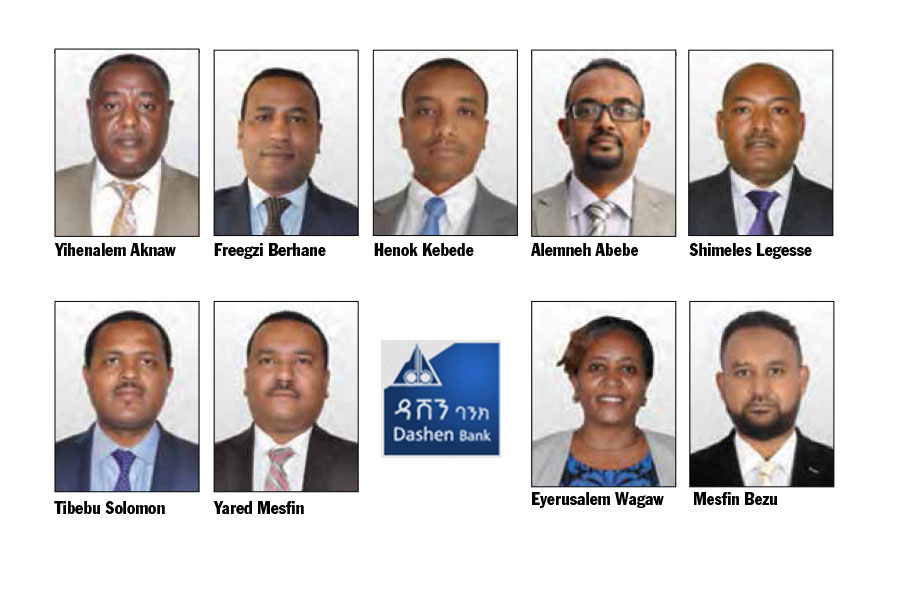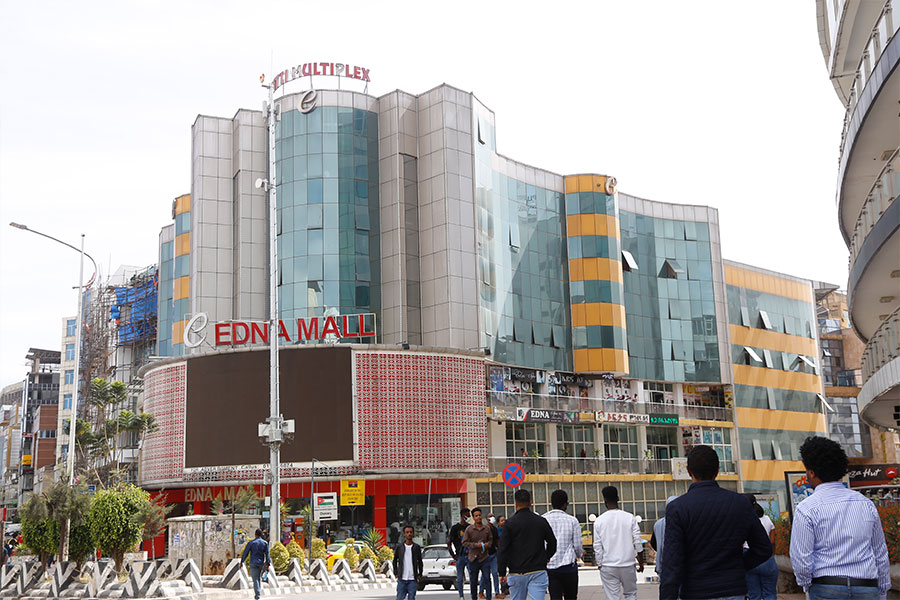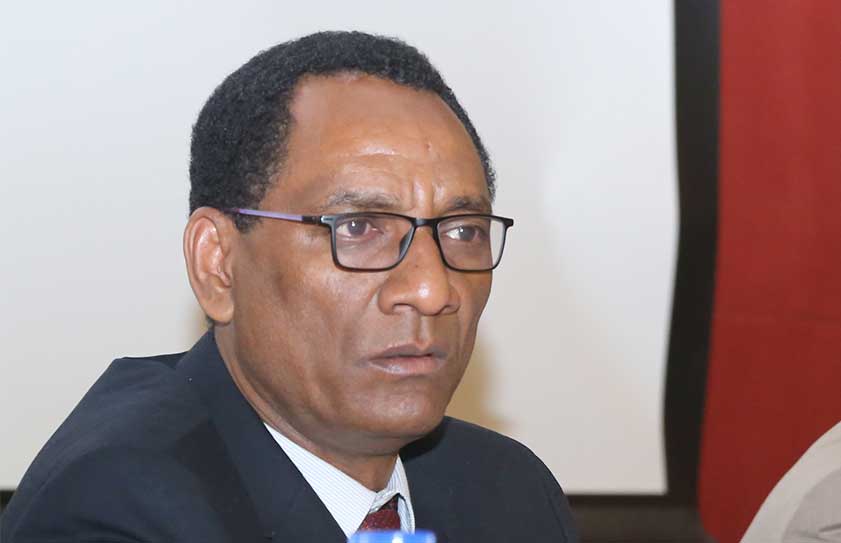
Life Matters | Jun 05,2023
Today, August 22, was supposed to be a day of celebration for a group of students under the Mekane Eyesus Seminary School, located just off Guinea Bissau Street in the Mekanisa neighbourhood of Nifas Silk District. The school was preparing to host a graduation ceremony. But, in a cruel twist of fate, the day of joy turned into a moment of mourning in the days leading up to it.
At around 4pm on Tuesday, the school of 400 students and 200 employees, was hit by sudden flooding when the adjacent Aqaqi River overflowed. Addis Abeba and the hills surrounding it have received above-average rainfall during this winter season many of its residents found unusually foggy and bitterly cold.
Zerihun Yadessa, a technician in the compound who first set foot in Seminary three decades ago, was among those on the scene. When he saw the water galloping, he immediately ran across to his house on the far side of the school's compound to save his wife and two children. His family made it out safe.
That was not the case for everyone. Part of the compound westward, which hosts over a dozen families in eight blocs, is especially vulnerable to flooding. Water from the adjacent river is a constant threat during rainy seasons, though the effects were normally manageable. This year, it was different.
That afternoon, the area was suddenly engulfed by flash flooding from two sides, and the water was everywhere within five minutes. It was forceful, unyielding to the barriers built up to deter its volume, and unforgiving to five of the eight blocs. The residences were completely wrecked. Water had filled their homes to the ceiling before they had the time to escape and, unable to run from the sudden torrent, a family of five perished. Three other people in another row of houses have died.
Sofia Essey, a 10-year old daughter of a teacher at the school, was one of these. She was unable to climb up onto the roof with others trying to escape the raging waters. After hours of search, the child's body was discovered nearby, dragged away by the current.
Zerihun and others had done the best they could, scouring and swimming through the muddy water to save the lives of as many people as possible. In the end, they had rescued more than 10. Their valour has not gone unnoticed. Worn out and downcast, Zerihun grudgingly accepted the praise offered by neighbours, friends and colleagues.
However, in anguish and despair, his mind races with the question: how did this happen?
Mekane Eyesus Seminary is accustomed to the river overflowing. Its management had taken measures to prevent exactly such a disaster from befalling its community.
They evacuate students from one of the houses every year, fearing the flooding would likely cause damage, according to Sima Gudeta, the dean at Mekane Eyesus' Bishoftu campus. The house is repaired and reinforced every year and hosts students once the rainy season is over. The school had also readied electric pumps to suck floodwater out. It had even built a retaining wall, spending 70 million Br to keep the troublesome river in check. None of this was an adequate response to save lives.
Zerihun lays the blame on the construction of the road, built by the Addis Ababa City Roads Authority during the early 2000s, leading to the nearby German Adebabay from Gofa. Soil and rocks dumped in the process of building the road have blocked the river's flow, acting as a makeshift dam. It caused the water to spill over in times of heavy rainfall.
Officials of the Addis Abeba Fire & Disaster Risk Management Commission beg to differ.
Commissioner of the department, Solomon Fisseha, inculpates the hefty rainfall and the very wall built by the Seminary to safeguard against flooding. He claims the wall blocked off the flow and exacerbated the extent of the flooding.
Several other neighbourhoods in the capital were hit by flooding on that murky Tuesday afternoon. Areas around Golf Club, Agusta, Weyira, in Kolfe Qeraniyo District, saw property destruction due to the torrential downpour.
Meteorologists at the National Meteorology Institute provide a more thorough explanation of why flooding becomes more common towards the end of the rainy season.
The soil is already saturated, unable to retain the flow due to heavier than usual rainfall over the past month, says Chali Debele, director of Meteorological Forecasting & Early Warning at the Agency, which clocked the rainfall at 38mm this week, which it classifies as heavy. On average, August is the wettest month for the capital, with 294mm of precipitation.
"It might continue to happen over the coming months," Chali cautioned. "It would be good to be prepared."
The Disaster Risk Management Commission is yet to conduct an assessment to identify the extent of the damage last week.
However, the recurrence of flooding costs the city administration an average of 210,000 Br for emergency assistance for every incident, expected to rise to 340,000 Br, a report from UN-Habitat released in 2017 revealed.
Flooding is not peculiar to the capital. Last year, the overflow of Awash River led to the displacement of over 144,000 people, causing five billion Birr in damage in Afar Regional State.
This year, the National Disaster Risk Management Commission reported that a little over one million people were affected, and floods across the country displaced almost 300,000 people since the beginning of the rainy season. While most of the flooding events outside the capital are the outcome of natural hazards, fixing drainage problems would have helped the residents of Addis Abeba lower the risk of flooding.
Chali blames road blockages and the clogging of drainage systems for the heavy overflows that cause sudden floods. The hailstorm on Tuesday also contributed to blocking flow and worsening the velocity of the flooding.
Addis Abeba is vulnerable to riverine as well as flash floods. Its vulnerability is aggravated by a poor drainage system and rapid housing development along riverbanks. This holds true for the Aqaqi River, where makeshift houses and stores can be seen dotting the bank.
With the limited availability of drainage services and continued mismanagement of stormwater drainage facilities, flash floods occur following heavy rains. Parts of Addis Abeba, such as Gulele, Kolfe and Yeka, districts that have experienced recurrent landslides associated with flooding, identified the UN-Habitat report released four years ago.
Effective drainage system operation requires improvements in solid waste management to ensure that drains are not clogged by waste, according to another report published by the World Bank in 2016.
However, drainage is not the only factor. Construction projects taking place along rivers are also partly responsible. These projects often replace muddy areas that absorb and retain water with hard surfaces such as concrete.
Milhan Desta is an environmentalist who has been working on river projects for the past seven years. She sees the flooding problem on riverside areas stems from a few major problems and significant deforestation alongside riverbanks.
"Greenery serves as a natural buffer, slowing down the flowing water and retaining it," she said.
The report from UN-Habitat backs her views, repeating that the disappearance of green space is likely responsible for 40pc of the flooding and landslides in the city.
The authorities have a responsibility to take all of this into consideration, ensuring that the disaster at Mekane Eyesus Seminary does happen again. For now, the family and friends of those who lost their lives that afternoon are in mourning. And those displaced by the flooding are staying with relatives, uncertain of where they will go.
According to Solomon, a few of the flood victims have been relocated to temporary shelters where they are provided with food and other necessities. His Commission is in talks with the City Administration to plan on providing more permanent living quarters.
PUBLISHED ON
Aug 21,2021 [ VOL
22 , NO
1112]

Life Matters | Jun 05,2023

Radar | Nov 26,2022

Agenda | Jul 27,2019

Fortune News | Jan 19,2019

Fortune News | Feb 06,2021

Fortune News | May 07,2022

Radar | Jun 30,2024

Fortune News | Nov 16,2019

Radar | May 23,2021

Fortune News | Jan 05,2020

Dec 22 , 2024 . By TIZITA SHEWAFERAW
Charged with transforming colossal state-owned enterprises into modern and competitiv...

Aug 18 , 2024 . By AKSAH ITALO
Although predictable Yonas Zerihun's job in the ride-hailing service is not immune to...

Jul 28 , 2024 . By TIZITA SHEWAFERAW
Unhabitual, perhaps too many, Samuel Gebreyohannes, 38, used to occasionally enjoy a couple of beers at breakfast. However, he recently swit...

Jul 13 , 2024 . By AKSAH ITALO
Investors who rely on tractors, trucks, and field vehicles for commuting, transporting commodities, and f...

Oct 25 , 2025
The regulatory machinery is on overdrive. In only two years, no fewer than 35 new pro...

Oct 18 , 2025
The political establishment, notably the ruling party and its top brass, has become p...

Oct 11 , 2025
Ladislas Farago, a roving Associated Press (AP) correspondent, arrived in Ethiopia in...

Oct 4 , 2025
Eyob Tekalegn (PhD) had been in the Governor's chair for only weeks when, on Septembe...